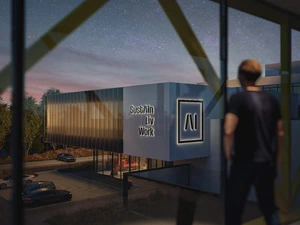According to her, the Centre’s main goal is to build a responsible, sustainable AI ecosystem that serves people – applying AI not just for technological progress but to improve society and the environment. Its mission goes much further than developing solutions – it’s about systemic transformation: changing mindsets, developing skills and influencing policy.
The solutions created by SustAInLivWork are all about real impact. For the Centre’s researchers, technological progress matters only if it is matched by responsibility, transparency and public trust. Their work is firmly rooted in AI ethics, explainable AI and sustainable development.
“Our principle is simple: not AI for its own sake, but AI for impact. It must be ethical, explainable, transparent, compliant with the EU AI Act and build public trust in technology,” Paulauskaitė-Tarasevičienė says.
Testing before investing
SustAInLivWork’s combined expertise gives businesses not just access to advanced AI technologies but a strategic opportunity to grow responsibly, stay competitive and prepare for the challenges of digital transformation.
“Today, the Centre can help companies improve efficiency, reduce risks, make data-driven decisions and comply with increasingly strict EU regulations. All this is possible through the services we provide,” says the SustAInLivWork Director.
Shortly, companies will be able to use SustAInLivWork’s lab and testbed infrastructure – to test AI solutions in real or simulated conditions (‘test before invest’), verify systems and get independent expert assessments.
“Companies will be able to become early adopters of new AI solutions, try out innovations before they reach the market and gain a competitive edge. They’ll also have access to valuable research-based multimodal datasets, help define challenges, generate new ideas, create start-ups and join national and international research and innovation projects,” Paulauskaitė-Tarasevičienė adds.
SustAInLivWork offers not just services but a co-creation space – a place to grow, experiment and develop AI solutions in collaboration with academia. It’s not just about deploying AI – it’s about understanding it, applying it responsibly and creating long-term value based on trust.
“In the future, this combination will only become more important. AI will no longer be an isolated technology – it will be an integral part of sustainability, work organisation and innovation strategies. It’s a new mindset that helps businesses grow stronger economically while creating greater value for society,” she concludes.




